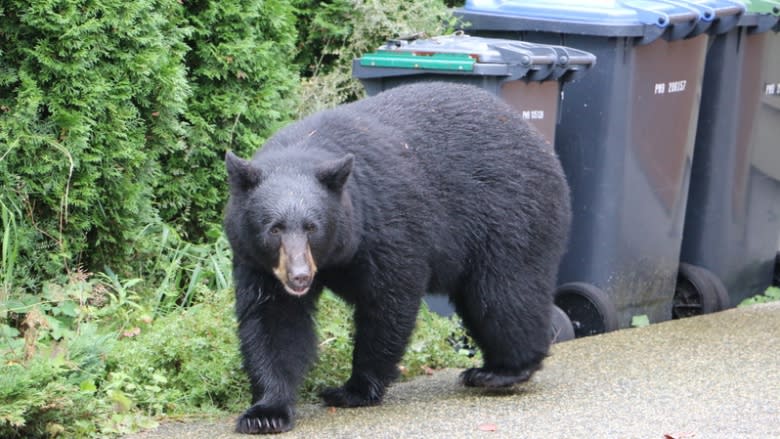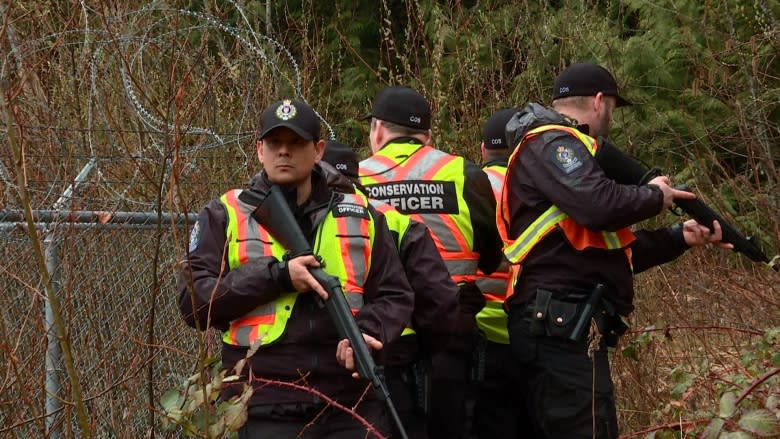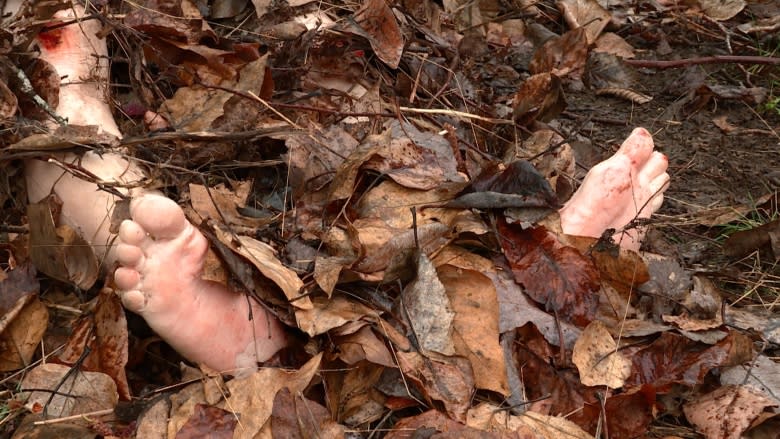Human-wildlife conflict prevention ramps up for spring
Bears and cougars are venturing into urban areas after a long winter in B.C., so wildlife specialists are preparing for the season ahead with education, enforcement and training.
Last year the province reported 500 bears destroyed due to human errors, and the City of Coquitlam is trying to reduce the number of bears in their area.
"It's good to remind everyone that the bears are going to be waking up shortly and... we need to work on securing any kind of wildlife attractant, especially garbage," Julie Kanya, the city's urban wildlife coordinator, told The Early Edition host Stephen Quinn.
She said that bird feeders and fruit trees are other attractants for hungry bears, so staff is ramping up their public education and enforcement as the season starts.
Their goal is to prevent the bears from forming the habit of looking for food in urban neighbourhoods because once bears become habituated to these kinds of food sources, it's difficult to change their behaviour.
For the past decade the city has run a bear education program, and was recognized by the province with an official Bear Smart community designation in 2017.
But they've recently cracked down on enforcement because Kanya said they're still seeing a fair amount of human-wildlife conflict, despite the designation.
"It is a challenge for us because people in Coquitlam do care about wildlife. They care about the bears and they don't want to see them getting destroyed, but that can result in people being hesitant to call conservation or call the city to report attractant issues," she said.
When humans and wildlife come into contact there's always a risk for the animal to attack, and the B.C. Conservation Officer Services are training new recruits on how to deal with aggressive predatory animals.
On Thursday in Chilliwack, officers were led through a simulation of a fatal attack as part of a three-day training event.
"We're providing this training for responders all across North America because they're being faced with more interactions with wildlife, they're being faced with more attacks from wildlife, and they're looking to us to give them some guidance on how to make sure their officers and communities are safe," said Sgt. Kevin Van Damme with the Conservation Officer service based out of Kamloops.
Instructors from the service shared their knowledge and skills on securing the scene of an attack, collecting forensic evidence and tracking with responders from B.C. and Alberta.
"We're working to get everybody up to speed so that there's more people trained to respond to these high stress incidents when they do occur," said Mike Ewald, a regional problem wildlife specialist with Alberta Fish and Wildlife.
Coquitlam isholding a free Bear Smart seminaron Apr. 17 at the Evergreen Cultural Centre to remind residents of the bylaws and guidelines.
With files from The Early Edition, Jon Hernandez




